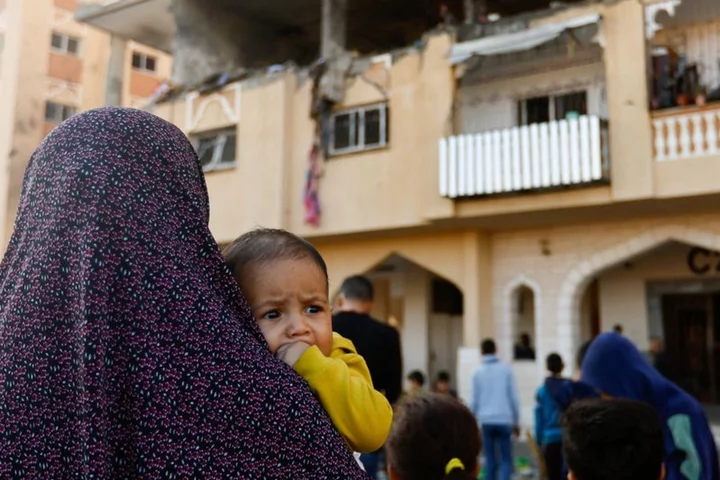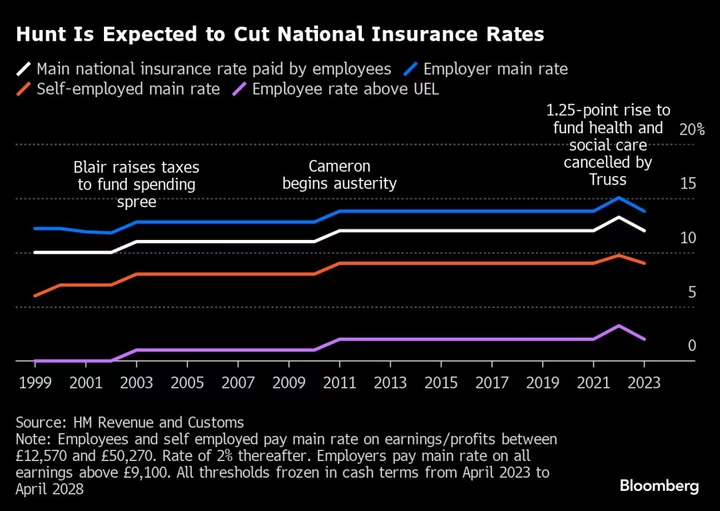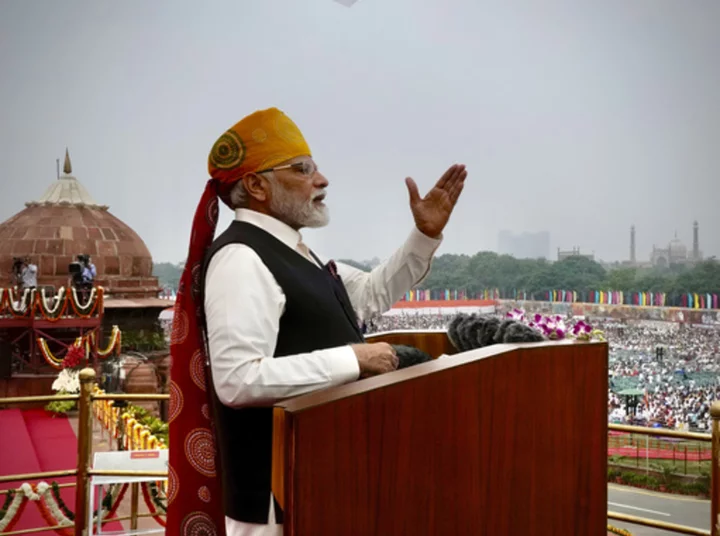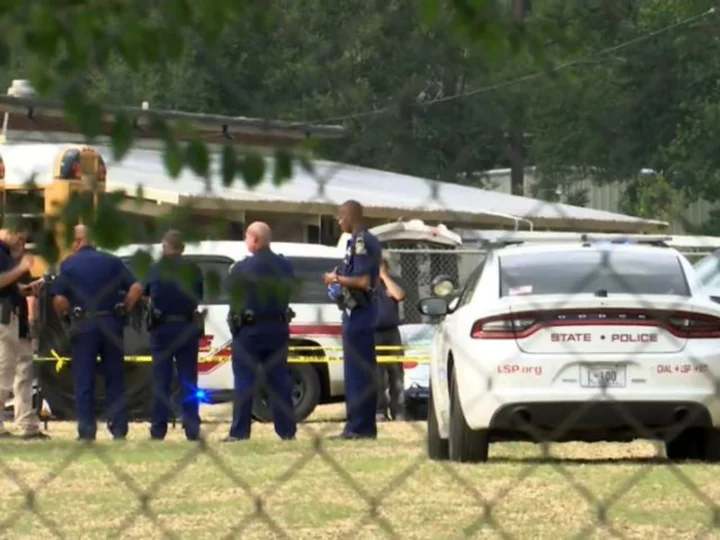By Nidal al-Mughrabi and James Mackenzie
GAZA/JERUSALEM Israeli air strikes on residential blocks in south Gaza killed at least 32 Palestinians on Saturday, medics said, after Israel again warned civilians to relocate as it turns to attacking Hamas in the enclave's south after subduing the north.
Such a move could compel hundreds of thousands of Palestinians who fled south from the Israeli assault on Gaza City to move again, along with residents of Khan Younis, a city of more than 400,000, worsening a dire humanitarian crisis.
"We're asking people to relocate. I know it's not easy for many of them, but we don't want to see civilians caught up in the crossfire," Mark Regev, an aide to Israeli Prime Minister Benjamin Netanyahu, told MSNBC on Friday.
Israel vowed to annihilate the Hamas militant group that controls the Gaza Strip after its Oct. 7 rampage into Israel in which its fighters killed 1,200 people and dragged 240 hostages into the enclave, according to Israeli tallies.
Since then, Israel has bombed much of Gaza City - the enclave's urban core - to rubble, ordered the depopulation of the northern half of the narrow strip and displaced around two-thirds of Gaza's 2.3 million Palestinians. Many of those who have fled fear their homelessness could become permanent.
Gaza health authorities raised their death toll on Friday to more than 12,000, 5,000 of them children. The United Nations deems those figures credible, though they are now updated infrequently due to the difficulty of collecting information.
Overnight on Saturday, 26 Palestinians were killed and 23 injured by an air strike on two apartments in a multi-storey block in a busy residential district of Khan Younis, according to health officials.
A few km (miles) to the north, six Palestinians were killed when a house was bombed from the air in Deir Al-Balah, according to health authorities.
There was no immediate comment from the Israeli military, which says Hamas militants use residential buildings and districts in densely populated Gaza as cover for operations posts and weaponry, something the Islamist movement denies.
Israel dropped leaflets over Khan Younis telling residents to evacuate to shelters, suggesting military operations there were imminent.
Regev said Israeli troops would have to advance into the city to oust Hamas fighters from underground tunnels and bunkers but that no such "enormous infrastructure" existed in less built-up areas to the west, closer to the Mediterranean coast.
"I'm pretty sure that they won't have to move again" if they move west, he said, referring to people in the area. "We're asking them to move to an area where hopefully there will be tents and a field hospital."
Regev said that since western areas were closer to the Rafah border crossing with Egypt, humanitarian aid could be brought in "as quickly as possible".
AL SHIFA HOSPITAL
At Gaza's largest hospital, Al Shifa in Gaza City, Israel said its forces had found a vehicle with a large number of weapons and what it called a Hamas tunnel shaft as it combs the complex in search of what it says is a Hamas command centre.
Al Shifa has been a primary target of Israel's ground advance, with its military saying that the hospital sits above a vast underground Hamas bunker. Hamas and hospital staff say this is false and that Israel's findings there have so far established no such thing.
The Israeli army said it briefly fought militants outside the hospital earlier this week before entering it to search it and question staff, and there had been no violence inside.
It released a video on Friday that it said showed a tunnel entrance in an outdoor area of the hospital. It appeared the area had been excavated. A bulldozer appeared in the background.
"We are seeing the Hamas presence in all of (Gaza) hospitals. This is a clear-cut presence," Israeli Major General Yraon Finkelman said in a video showing him conferring with army engineers excavating areas within Al Shifa's grounds.
"They are making cynical use of these hospitals, as we can see here in the heart of Shifa ... They are hiding under the hospitals with their weaponry, with their command centres, with their capabilities."
Hamas denies using hospitals for military purposes.
On Saturday, the Israeli military denied accusations by Palestinian officials that it had ordered the evacuation of all staff and 1,000-1,500 patients there, with evacuees facing treks along dangerous, bombed-out roads littered with dead bodies.
In a statement, the army said forces had acceded to a request from Al Shifa's director to "expand and assist" in more voluntary evacuations via a "secure route". Medical personnel could stay to support patients too weak to be evacuated, it said.
Al Shifa staff said a premature baby died at the hospital on Friday, the first baby to die there in the two days since Israeli forces entered. Three had died in the previous days while the hospital was surrounded.
A total of 15 Gaza Palestinians including eight children and family members arrived in the United Arab Emirates on Friday from Egypt for treatment of war wounds or illness after being evacuated through Rafah. They were the first of 1,000 the UAE pledged to treat at its hospitals, with daily flights expected.
FUEL DELIVERIES
With the war entering its seventh week, there was no sign of a let-up, despite international calls for a ceasefire or at least for humanitarian pauses.
"We have prepared ourselves for a long and sustained defence from all directions. The more time the occupation's forces stay in Gaza, the heavier their continuous losses," Hamas armed wing spokesman Abu Ubaida said in a video statement.
Amid warnings that its Gaza siege raised the immediate risk of starvation, Israel on Friday appeared to bow to international pressure in agreeing to allow fuel trucks in and promising "no limitation" on aid requested by the United Nations.
The White House said in a post on X, formerly known as Twitter, that the fuel deliveries should "continue on a regular basis and in larger quantities."
Violence also flared anew in the Israeli-occupied West Bank, with at least five Palestinians killed and two injured in an Israeli air strike on a building in the Balata refugee camp in the central city of Nablus, the Palestinian Red Crescent ambulance service said early on Saturday.
(Reporting by Nidal al-Mughrabi, James Mackenzie Henriette Chacar and Reuters bureaux; Writing by Jonathan Landay and Mark Heinrich; Editing by Kim Coghill, William Mallard and Tomasz Janowski)









